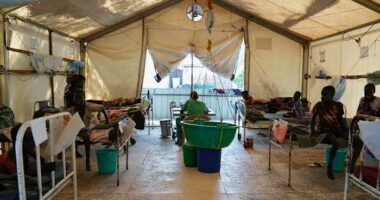Share this @internewscast.com

SAVANNAH, Ga. () — With higher temperatures, heat illnesses are becoming more common and more dangerous.
If you’re outside working, exercising, or simply enjoying the sun, it’s easy for your body to overheat quickly. We often talk about high temperatures, but it’s more than just discomfort—it can be genuinely dangerous to your health.
I spoke with a local doctor who sees cases of heat exhaustion and heat stroke every summer and wants to make sure you know the difference.
Dr. Timothy Connelly, an Internal Medicine Physician at Memorial Health, explains, “Heat exhaustion involves feeling extremely tired, fatigued, sweating a lot, and generally not feeling well. That’s the signal to take action and escape the heat. Once it progresses to heat stroke, individuals might become unaware, not feel hot anymore, and experience what we describe as encephalopathy or altered mental status. Their speech may become incoherent. These situations are acutely life-threatening, necessitating immediate removal from the heat.”
Particularly at risk are children, the elderly, and those who work outside, but even fit adults can become ill without proper hydration or breaks from the heat. Medical professionals suggest avoiding heat-related illnesses by staying hydrated, wearing lightweight clothing, and steering clear of outdoor activities during peak heat, generally from 11 a.m. to 4 p.m. But how should you cope if avoiding the heat isn’t an option?
Dr. Connelly advises, “Unhoused individuals should utilize open cooling centers and stay near such facilities. Workers in hot conditions must take necessary precautions: don light, sun-reflective clothing, and have access to first aid cooling gear. Firefighters, for instance, use cooling vests due to their heavy gear. I also suggest freezing water bottles to have on hand; placing them in the groin, armpit, or axillary regions can quickly reduce core body temperature if someone overheats.”
If you or someone else begins experiencing signs like dizziness, nausea, confusion, or a rapid heart rate, prompt action is vital. Move to a cooler location, drink water, and seek medical attention if symptoms persist.
Staying safe in the heat isn’t just about comfort; it could save a life.










